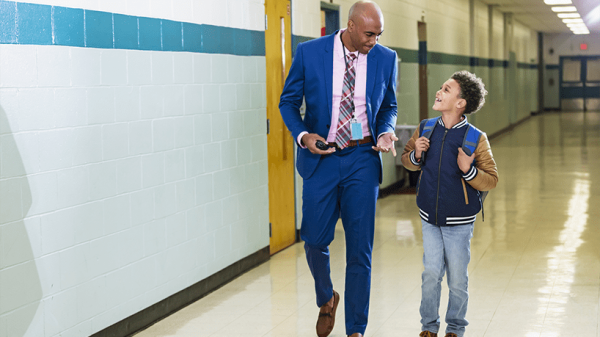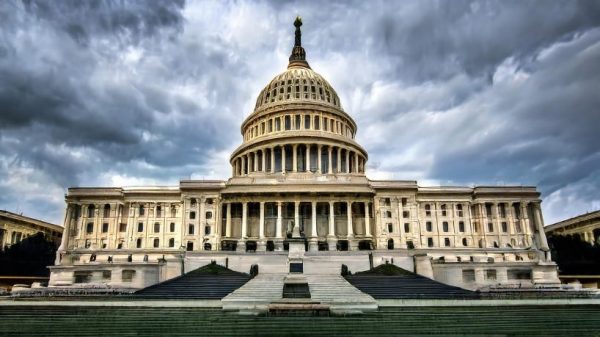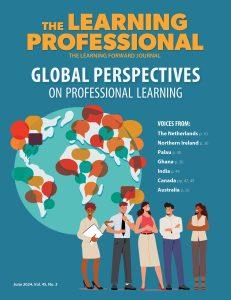In support of Public Schools Week 2023, President of Learning Forward Mississippi Betty Wilson-McSwain participated as a panelist in a webinar titled “The Language of Connection to Build Community Relationships.” Facilitating the webinar was Randi Weingarten, president of the American Federation of Teachers. Their exchange highlights the importance of leaning into data and articulating hope to craft stories of impact to help lawmakers understand what’s needed now to help kids excel.
Randi Weingarten: Why is it important for educators to tell their stories? What makes stories effective?
Betty Wilson-McSwain: As a Learning Forward member, I am always amazed at how they build our advocacy skills, particularly around Title II, because those dollars are specifically for educators and building the capacity of teachers and leaders in order to impact our students. So telling the story is very important because how do our congressional delegation know how to vote if they don’t know what’s happening back at the local districts? Those decisions and those funding allocations are so important that we can continue the work that we’re doing and do it even better.
We did learn during the pandemic that a lot of things can be done in a different manner. We learned that a lot of children have social and emotional concerns, but so do the adults. And so now we’re on a trajectory of learning how to incorporate the social and emotional piece within the academic piece. But the funding has to be there. The policies to protect best practices have to be there. And so I am very proud of what Learning Forward does, how they support affiliates to tell our stories at the local and state level – not just to impact what we’re doing in our district, but also to impact what our state legislators and congressmen are actually funding and making laws in order to protect what needs to happen for each and every child.
Randi Weingarten: How do you use storytelling to help that along? Because most people find that the policies around what we do are mind numbing — the words are inaccessible. What are the stories you’re telling?
Betty Wilson-McSwain: One of the stories, of course, is always about student achievement. The stories of what’s working, what’s the baseline data, the prerequisite data, but then what is the story of how did you achieve those goals?
We want students to change the world. We want students to compete within society. What does that look like in practice? To tell those stories of how is very, very important.
One of the things that we do in Mississippi is we spotlight schools. Those schools where demographics look like our demographics. Where teacher shortages is a real situation in all of our districts. So how are you overcoming those challenges? And students are still excelling or achieving at a high level.
This past November, we spotlighted five school districts with specific schools of how they grew. Not just high achievement, but what was the baseline? What is the story to the how? And we did a panel discussion. Everybody in the room, their ears lit up because, “I want to do that in my district. I want to replicate the success in my context in my environment.’ To share those stories, another thing it does is provide hope. Because if you can do it, I can do it also. And that’s important – that’s important to parents.
Randi Weingarten: You’ve spent a lot of time with boots on the ground doing this work. How do you connect your lived and learned experiences to storytelling and how do you connect storytelling to hope?
I never stop. I never want to be at the bottom. I don't want to even be at the top of the bottom. Share on XBetty Wilson-McSwain: One of the things we’ve done is looked at the response to interventions. That’s something that specifically I work with, particularly when we look at federal dollars and how are we ensuring equitable opportunities and excellent opportunities for all children. I (bring to the current challenges) my experiences over the past 33 years as a classroom teacher and as a career technical director. When we can connect the economy and jobs to academic learning – that provides hope.
I never stop. I never want to be at the bottom. I don’t want to even be at the top of the bottom. And when we look at our state and when we look at how we’re growing, we want to publicize our fourth-grade NAEP scores show there was some of the highest growth areas in the nation. We want to also make sure that’s happening in every pocket of that accountability system.
Standing up for public education
Public Schools Week is connected to a larger #HereforTheKids initiative encompassing the voices of parents, teachers, community and school leaders, and policymakers committed to equipping schools to meet the diverse needs of all learners and ensuring each and every child has access to excellent teaching. Learn who the players are and find essential resources to support public schools here. Joined in the webinar by panelists Stephen Wakefield, Discovery Education, and Jerry Gallagher, Donovan Group, Wilson-McSwain is assistant superintendent for Federal Programs and Testing for McComb School District.
Resources
Powered by Title II, information and resources on and supporting Title II
How districts and states are addressing teacher turnover, The Learning Professional
Insights page, The Donovan Group; How are you telling your story?
Watch “The Language of Connection to Build Community Relationships”






